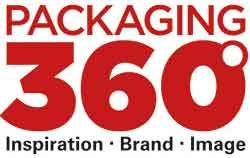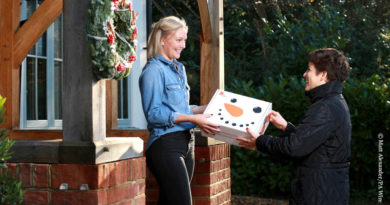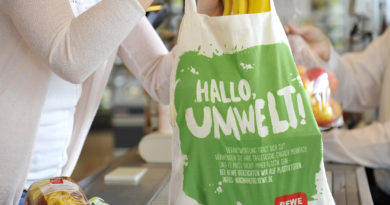Plastic waste avoidance in London
A pilot project that feeds plastic drums into a recycling system after use was started In the British capital. So far, hundreds of thousands of these barrels have been thrown away without being recovered every year.
In England, the majority of plastic drums, which are popular there, are not recycled after emptying, but disposed of in landfills. It is reckoned that In London alone, more than 500,000 KeyKegs, pressure-resistant plastic containers with inner bladders, are produced each year. In order to solve the associated waste problem, a pilot project has now been started there which feeds the KeyKegs into a recycling system. The drum manufacturer KeyKeg, the waste recycler First Mile and the One Circle Initiative are involved in this project.
Within the context of the pilot project, Lightweight Containers, the company behind KeyKeg, is actively involved in the waste phase as a packaging manufacturer. Together with beverage distributors and the catering sector, the company is building up a community that collects KeyKegs and prepares them for processing. OneCircle then handles the transport and recycling.
It’s time for closed material cycles
First Mile, a CO2-neutral waste processor, sees great opportunities in the collection and recycling of such plastic drums. For Joe Allen, Chief Commercial Officer of First Mile, it’s great that his company can now reuse these drums as raw materials. „The time has come,“ he says, „to work with packaging manufacturers on closed loops – and KeyKeg leads the way.“
Incidentally, this recycling is possible because Lightweight Containers designed its plastic drums for circularity already several years ago. For its part, OneCircle has already developed various collection models and recycling methods and supports relevant recycling systems worldwide. In this field OneCircle works with breweries, beverage distributors and innovative waste companies, for example First Mile and GroenCollect. In England, OneCircle is currently setting up a nationwide collection network. Members of the network collect the barrels and press them into bales. OneCircle then transports the bales – around 12,000 barrels per truckload – to the processing plant.
KeyKegs consist of 81 percent PP and PET, two types of plastic that can be used as circular raw materials. In addition, the KeyKegs are produced with a 30 percent share of already recycled plastics. This share is to be increased to 40 percent in 2019.




